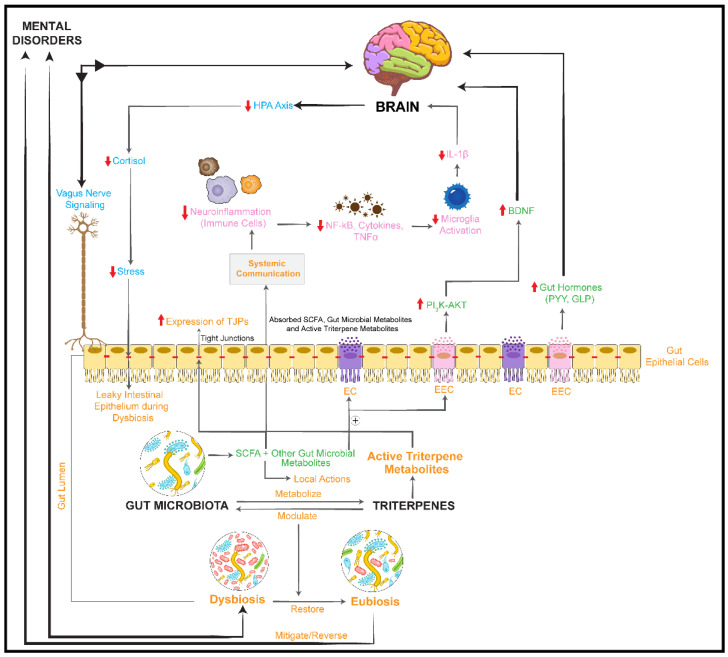Figure 3.
Potential gut–brain communication pathways modulated by triterpenes in mental disorders. Triterpenes (such as ginsenosides) can alter gut–brain microbiome communication in impaired brain function and promote a healthy mental state. These beneficial effects are related to rebalancing the gut microbiome and influencing neural (blue letters), immune (pink letters), and humoral/metabolic (green letters) pathways. Triterpene glycosides are metabolized by the gut microbiome into active components (e.g., ginsenosides into compound K). These active metabolites are more bioavailable than the native compounds. Ginsenosides and their metabolites promote neurotrophic factors and reduce pro-inflammatory mediators and stress levels [207,209,210,211]. The major gut–brain mechanisms by which ginsenosides have a beneficial effect are marked with red arrows ( activation/upregulation,
activation/upregulation,  inhibition/downregulation). TJPs: tight junction proteins; BDNF: brain-derived neurotrophic factor; PI3K: phosphoinositol 3 phosphate; AKT: protein kinase B; IL-1β: interleukin-1β; NF-κB: nuclear factor-κB; PYY: peptide YY; GLP1: glucagon-like peptide 1; ⊕: stimulates/promotes.
inhibition/downregulation). TJPs: tight junction proteins; BDNF: brain-derived neurotrophic factor; PI3K: phosphoinositol 3 phosphate; AKT: protein kinase B; IL-1β: interleukin-1β; NF-κB: nuclear factor-κB; PYY: peptide YY; GLP1: glucagon-like peptide 1; ⊕: stimulates/promotes.

